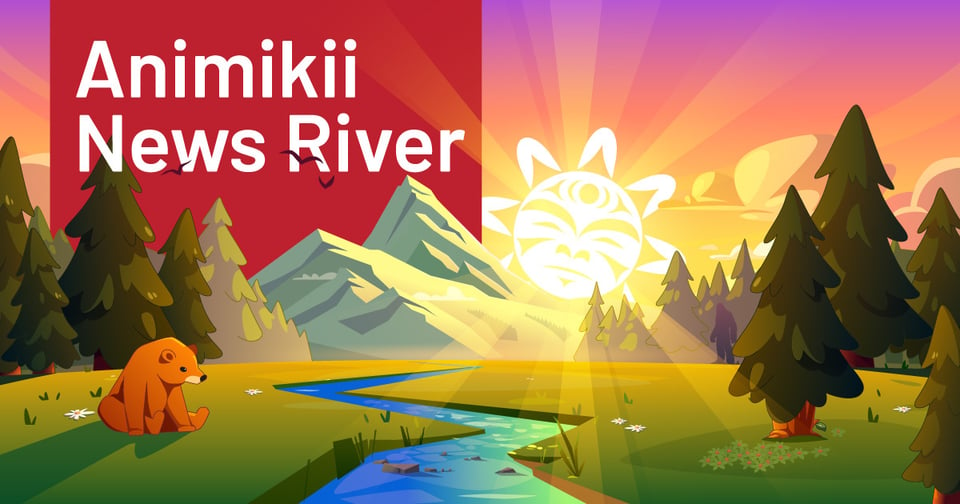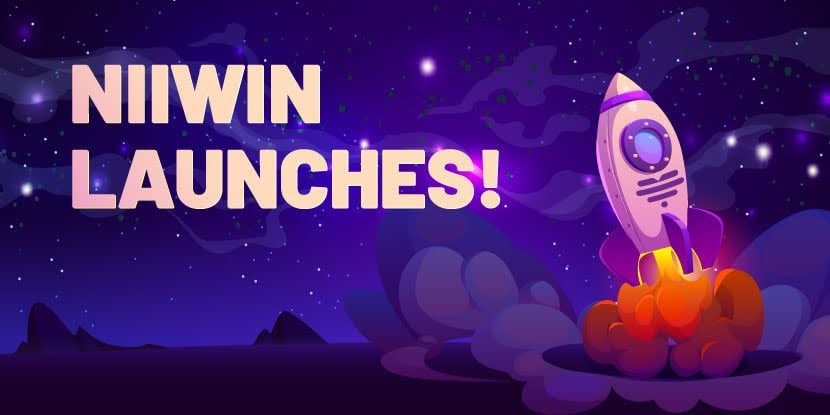It’s our birthday and we’re celebrating by launching Niiwin!
Big week here at Animikii! We’re celebrating 22 years in business and we’re officially launching our data platform Niiwin!

Boozhoo News River Readers,
Well, it’s a pretty big week here at Animikii, so you’re getting an early edition of the news!
We’re celebrating 22 years in business and to celebrate we’re officially launching our data platform Niiwin! We appreciate you for being here alongside us, and you are literally the very first people to know.
Outside of our big news, this week’s stories include:
The 2026 U.S. Indigenous Data Sovereignty & Governance Summit is actively seeking abstracts and sponsors.
Te Kāhui Raraunga unveils a new framework designed to protect Māori data use in the AI age and is urging government agencies to adopt it.
How daylight savings time misses a key ecological (and Indigenous) perspective.

Indigenous Data Platform Launches for Early Access
The big picture: Our team here at Animikii has spent twenty years advancing Indigenous Data Sovereignty. We’ve now developed technology that lets Indigenous communities control their information through frameworks like OCAP® (Ownership, Control, Access, Possession) and CARE (Collective Benefit, Authority to Control, Responsibility, Ethics).
Our Indigenous-owned social enterprise brings sovereignty principles to values-driven organizations worldwide. Any group that believes data should serve communities, not corporations, can access the same tools Indigenous nations use.
Why it matters: Animikii's data sovereignty platform Niiwin is opening to our first users through the #DataBack Fellowship! Who should apply? Indigenous Peoples nations with community resources or records to protect. Museums replacing colonial cataloging systems. Researchers seeking ethical data repositories. Environmental groups tracking climate data. The #DataBack Fellowship is open to all values-driven organizations with an Indigenous connection who are ready to move beyond big tech’s extractive platforms.
Key points:
Organizations interested in the #DataBack Fellowship should apply by December 8th (at EOD). Selected fellows will receive one year free access to Niiwin, direct onboarding with Animikii’s team, special facilitated access to Niiwin Pathfinding Course led by leaders in the field, and more!
Animikii also hosts #DataBack Day on February 20th, 2026. This online event will explore data reclamation from multiple angles. How do communities take back data? What does data sovereignty look like in practice? Speakers will be announced soon and the session will cover practical strategies across sectors.
What we’re saying: "Indigenous organizations solved the hardest data challenges first," says Jeff Ward, CEO of Animikii, the company who created Niiwin and who send your News River each week. ”Seven Generations' thinking shapes the platform. It's built to outlast political cycles and market disruptions. Numerous Indigenous organizations already protect everything from survivor support records to cultural knowledge with Niiwin and we are bringing this tech to the world.”
Learn more: Your data tells your story. It's time to decide who owns that story. Read more about the launch of Niiwin here.
Curated Articles:
U.S. Indigenous Data Sovereignty & Governance Summit 2026
The U.S. Indigenous Data Sovereignty Network invites Tribal and Indigenous leaders, Indigenous community programs, Indigenous data-focused scholars, policy experts, and other data actors and practitioners to submit a proposal for the 2026 Summit, “Coming Home: Indigenous Data Governance By Us For Us”. We invite all data actors to submit proposals demonstrating how they have interpreted, implemented, and/or adapted in practice the CARE Principles. We invite Indigenous people to submit proposals detailing using data for governance, the governance of Indigenous data, Indigenous data futures, and infrastructure. The next U.S. Indigenous Data Sovereignty & Governance Summit is happening in Tucson, AZ, on April 14-17, 2026 and we are actively seeking sponsors.
It is that time again. Time to wonder: Why do we turn the clocks forward and backward twice a year? Academics, scientists, politicians, economists, employers, parents – and just about everyone else you will interact with this week – are likely debating a wide range of reasons for and against daylight saving time. But the reason is right there in the name: It’s an effort to “save” daylight hours, which some express as an opportunity for people to “make more use of” time when it’s light outside. But as an Indigenous person who studies environmental humanities, this sort of effort, and the debate about it, misses a key ecological perspective.
Iwi leaders unveil AI safeguards to protect Māori data
Te Kāhui Raraunga - the working arm of the Data Iwi Leaders Group - has unveiled a new framework designed to protect Māori data use in the AI age and is urging government agencies to adopt it into their existing policies to avoid systems perpetuating bias and discrimination. Te Kāhui Raraunga Lead Technician Kirikowhai Mikaere (Tūhourangi, Ngāti Whakaue) said there needed to be greater transparency in New Zealand's adoption of AI. "When people think about what we're asking for in Māori data sovereignty, it's really not about restriction, but it's about distinction in this kind of global market. "And that's the opportunity that exists, is that we could be seen as the country that is known for ethical AI."
Indigenous Identity: ‘Invisible within the data’
Federal data problems contribute to the unknown number of Indigenous people in the US. Even in the fight to decolonize data, Abigail Echo-Hawk thinks about how she’s counted, whether that’s on a census form, in the doctor’s office or for a survey. She’s a citizen of Pawnee Nation in Oklahoma and a member of the Upper Ahtna Athabaskan people of Mentasta Lake in Alaska. “I am blessed to be able to contribute to both of those tribes in the way that I should as a tribal person,” she said. “And we deserve to be seen and counted in all of that.” The public health researcher and director of the Urban Indian Health Institute has trained her two sons to not check the box, “Hispanic,” on any and all data forms because they are also Mexican. “We know now that if they mark Hispanic/Mexican and American Indian/Alaska Native that they’re not counted as Native people,” Echo-Hawk said.
Embedding the frontiers in climate action: navigating the evolving earth-human ecosystem
Artificial intelligence (AI) offers transformative potential in addressing climate change by capturing the nuanced dynamics of the Earth-human ecosystem. However, AI-driven solutions risk cognitive offloading and epistemic stagnation, which can limit our capacity to reimagine symbiotic coexistence as climate crises evolve. We propose shifting from narrow, solution-oriented narratives to proactive, inclusive visions that endogenize AI through transdisciplinary approaches—ensuring resilience redesign benefits marginalized communities and fosters reciprocal learning for regenerative futures.

Add a comment: